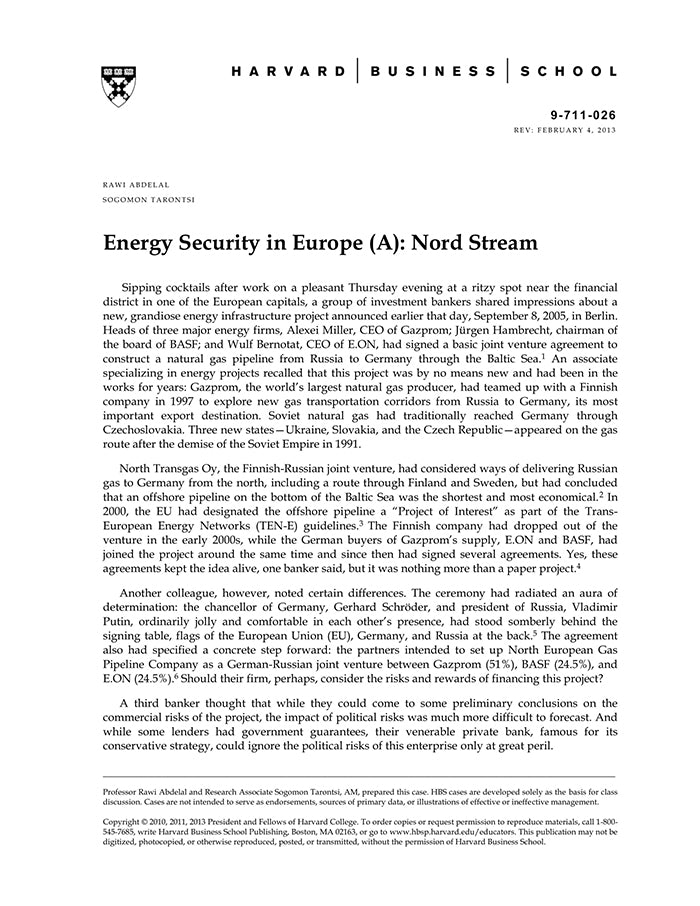Energy Security in Europe (A): Nord Stream
受取状況を読み込めませんでした
Russian and German energy firms initiated the Nord Stream natural gas pipeline project with strong political support from their home governments but encountered resistance from other states. Although the pipeline would connect Russia with Germany directly, the project was not simply a bilateral matter. First, a need to secure construction permits in multiple jurisdictions around the Baltic Sea involved other countries. And second, Germany's membership in the European Union entailed compliance with goals and values of the entire union, which stressed the imperative of collective action in energy matters and dangers of succumbing to "national reflexes." Thus the implications of the project became a matter of concern to the entire European Union but Europeans struggled to articulate the meaning of Nord Stream: was it a "separate peace" between Russia and Germany to the detriment of the rest, or was it a pan-European deal to the benefit of all? As the case chronicles, the success of Nord Stream depended on the ability of its creators to ensure that latter view prevailed over the former.
【書誌情報】
ページ数:40ページ
サイズ:A4
商品番号:HBSP-711026
発行日:2010/11/4
登録日:2011/10/5


